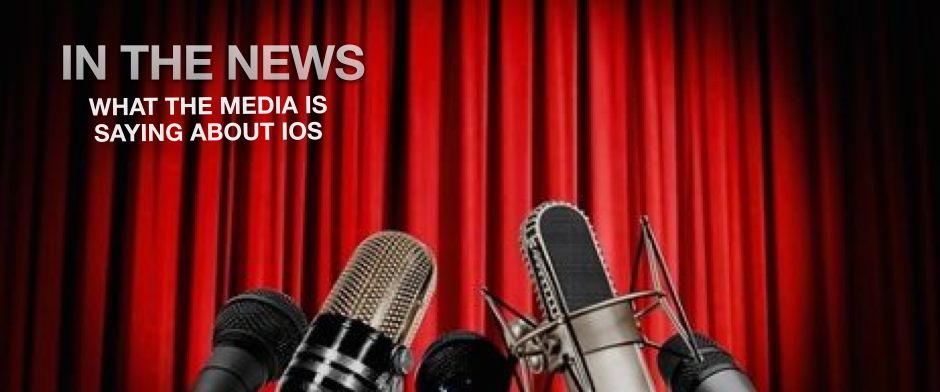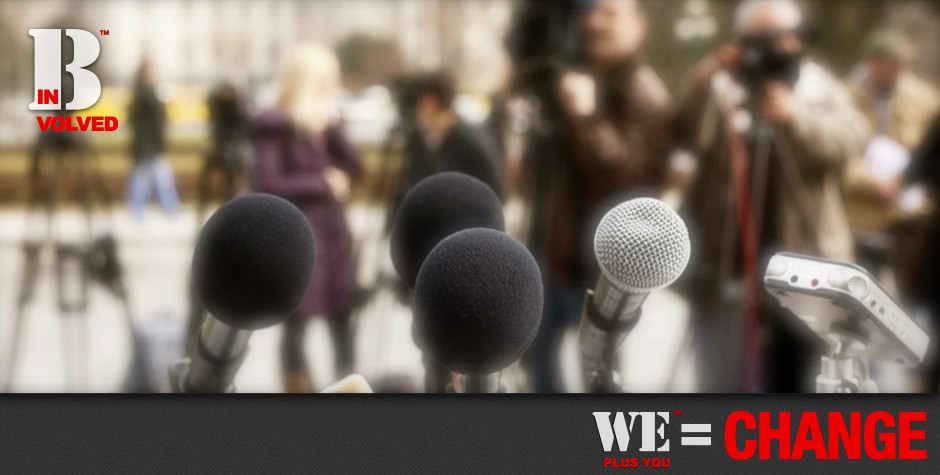Recent Press
 by David Radcliff
by David Radcliff
August, 2010, Ability Magazine
It began as a straightforward History Day project for his son Eric’s high school class. Five years later, the It’s Our Story oral history series continues to consume much of Scott Cooper’s focus, time and resources. Its scope is as wide as its mission is simple: to document, package and promote the too-often unheard voices of people with disabilities across America.
A lanky, good-natured photographer who says he enjoys the “relaxed, country life” of Northern California, Cooper admits he hadn’t done much traveling before the It’s Our Story project began to unfold in June of 2005. But when his son Eric, who has muscular dystrophy, expressed interest in researching disability advocate Ed Roberts for a class project, Cooper jumped at the chance to help.
“I was a 24-7 family kind of guy,” Cooper said. “I figured a project like this would be a good way for us to spend some time together. So while Eric was going to summer school, I started researching and making some phone calls.”
It wasn’t long before father and son had secured face-to-face meetings with Fred Fey and Elmer Bartell, two notable forces in the history of disability rights. According to Cooper, those conversations prompted something of a shift in his son’s self-perception. Suddenly, Eric’s future didn’t seem so limited
“As a father, I’m not as interested in telling my kid what to do as I am in showing him how it can be done,” Cooper said. “I wanted to introduce my son to success. Watching Eric move from apprehension about his future to excitement about his future—that was pretty powerful.”
And so the project expanded. Over the span of a month, Cooper and son criss-crossed the country, conducting more than thirty interviews and visiting Warm Springs, GA, where they toured a treatment center begun by President Franklin Roosevelt for polio rehabilitation. It was there that Cooper says he witnessed concrete and unforgettable evidence of his son’s newfound sense of empowerment.
“In the past, Eric had always been against the idea of using an electric cart,” Cooper remembers. “He was more, ‘I’m going to stagger and waddle my way through life.’ But at Warm Springs, he sat in an electric cart at five p.m. and had worn out the battery by eleven. Suddenly he wanted to get one. Something was changing.”
Eventually the It’s Our Story experiment was forced to adapt to its own set of changes. As Eric departed to pursue a degree in urban planning at UC Berkeley, his father’s personal investment in the project only intensified.
Today the It’s Our Story endeavor boasts over 1,300 hours of conversation about disability life and has collected interviews in more than a hundred cities from Boston to San Francisco. Lacking the budget to pay a film crew or to book hotel rooms, Cooper traversed the country mostly alone, sleeping in his conversion van and seeking out the stories of parents, children, advocates, wounded military veterans—altogether a mere fraction of the 54 million Americans who today live with a disability.
“It cost me a marriage,” Cooper says of the mammoth expedition he’s now working to promote at media events and disability conferences. “It cost me a lot. But the fact is that people in the disability community don’t often have the golden years to write memoirs.
Advocates from the ‘50s and ‘60s are dying today, and it was important to me to get these voices documented because people with disabilities have the power to teach humanity how to be more human.” During interview number 154, with disability scholar Victor Pineda, Cooper forged a relationship that took his homespun project to an entirely new level of potential. Pineda, then a graduate student at UC Berkeley, had won a major national research grant and was at work founding Berkeley’s Disability Media Center when he and Cooper’s paths collided. Almost immediately the two men recognized they held a common goal.
“We totally hit it off,” Pineda remembers. “Through the Media Center, I had been working to create opportunities for people with disabilities: facilitating professional development and training, helping them gain experience in media and filmmaking. After talking with Scott, I realized he was on to something big. I said, ‘We need to join forces. We can really scale up this content’.”
Today, under the banner of his non-profit organization, The Victor Pineda Foundation, Pineda works closely with Cooper in shaping It’s Our Story into an educational resource—an interactive teaching tool through which educators, creative artists, and young people can learn and converser about the experiences of those with disabilities.
In collaboration with a small team of interns and editors (nearly all of whom themselves have disabilities), Cooper and Pineda have crafted an array of multimedia presentations designed to make learning about this largely unexplored minority group into an engaging, user-driven experience.
Pineda says the project will even include a free, online video-editing program so that visitors can add their own stories to the mix.
“Everyone knows about Martin Luther King and Harvey Milk,” Pineda said, “but few know about Ed Roberts or Justin Dart or the California sit-ins that created opportunities and access for people with disabilities. If we can get these stories into the public schools, into the curriculum, we can get people more aware and more involved. We can change perceptions. These are the hidden narratives of our history.”
Pineda, who is currently completing his PhD at UCLA’s School of Public Affairs, is no stranger to that history. At 31 years old, he weighs about ninety pounds and uses a formidable motorized chair to navigate his apartment, international airports, and the halls of the United Nations as an avid promoter of disability rights. Cooper notes that Pineda’s high levels of achievement and self-confidence have made him an invaluable advocate for the It’s Our Story project.
“Disability still petrifies so much of the mainstream,” Cooper said, “and that’s what we’re really hoping to influence. When Victor rolls into a room, people see him on his respirator and wonder, ‘Oh my God! Is this guy going to die?’ But then he just takes over.”
Though Cooper is the first to admit that, contrasted against Pineda, he might seem the more unexpected conduit for examining disability experience in America, he maintains this sort of snap judgment is precisely what It’s Our Story is designed to dismantle.
Like millions of Americans, Cooper lives with what he calls “the invisible disabilities” of dyslexia and Attention Deficit Hyperactivity Disorder (ADHD)—challenges that went undiagnosed for most of his life.
“When I was growing up in the early ‘70s, special education was not a reality,” Cooper said. “I just knew I was different from the time I was five or six years old. I felt it. When you have a hidden disability, you learn it’s best to act dumb or to say nothing, so no one else is picking you out as the alien. But I always felt like the alien.”
It was his daily experiences with social alienation and academic frustration, Cooper recalls, which ultimately directed him toward a life in the creative arts. Though he never graduated high school, Cooper took multiple classes to learn to write while in his twenties, and managed to support himself with work as a grip on film sets and as a photographer. Today he attributes the impressive scope and depth of the It’s Our Story project to the “obsessive drive” caused by his ADHD.
“My disability is not disabling,” Cooper said. “It’s actually the source of all of my creative juice. When I grab onto a subject, I put the blinders on and I go deep. I treasure what makes me different, because this archive never would’ve gotten done if not for my disability.”
At the heart of the It’s Our Story enterprise, Cooper says, is a powerful desire to bring others to a similar awareness of their own potential. Under the guidance of Cooper and Pineda, the archive aims to be all-inclusive and informative, reframing notions about people with disabilities for anyone who sees them as a group to be feared, avoided or pitied, or for any young person who—as Eric was years ago—might be doubtful of his own potential for achievement.
“There’s often a sense within the disability community,” Cooper said, “that, ‘if you don’t got it, you don’t get it’. So it’s our challenge, our responsibility, to communicate the experience of living with a disability. Because once people start to ‘get it’, I think we’ll begin to see big advancements in employment, education, socialization. But until we can communicate who we are, the stigmas that follow us aren’t going to go anywhere.”

